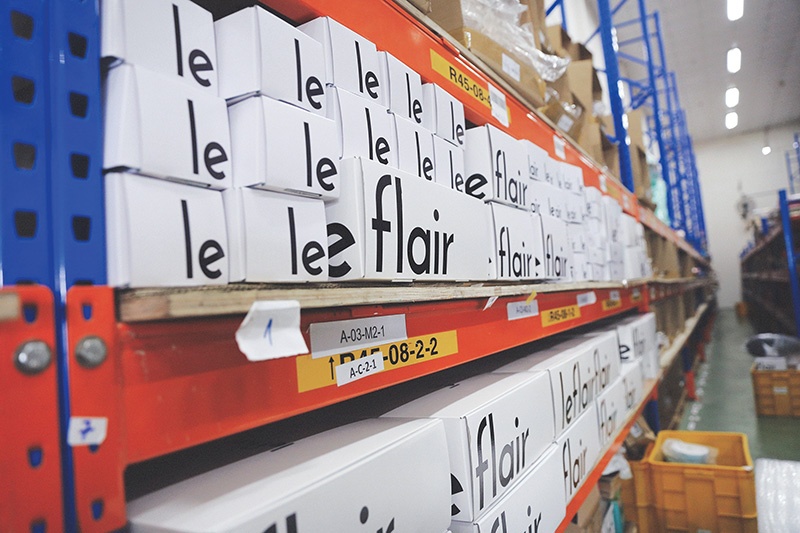Lack of novelty may hinder IPO ambitions
 |
| Leflair, and its accompanying intellectual properties, was acquired by Society Pass in June |
Existing shareholders have yet to indicate an interest in purchasing shares of the data-driven loyalty platform at the IPO price after the target was made last week to raise $17-22 million in gross proceeds on the tech-heavy Nasdaq. The company currently markets to both consumers and merchants in Vietnam while maintaining an administrative headquarters in Singapore.
According to its filing on Nasdaq, Society Pass’ business currently comprises seven e-commerce interfaces divided into two – a consumer-facing segment and a merchant-facing segment. The former includes the SoPa Loyalty app, SoPa.asia Loyalty Marketplace website, Leflair Lifestyle app, and Leflair Lifestyle Marketplace site.
If successful, Society Pass would become the first Vietnamese e-commerce company to go public in the US, ahead of the likes of VNG, VinFast, Loship, and Tiki.
Last month, Society Pass completed an undisclosed Series C funding round to accelerate its growth and acquisition strategy in Southeast Asia and South Asia.
Society Pass acquired Leflair in Vietnam in the second quarter and relaunched the luxury e-commerce site in the third. After an official comeback in Vietnam, it plans to expand Leflair in Southeast Asia in 2022 to ramp up its footprint in the region.
Founder, chairman, and CEO Dennis Nguyen was previously in various roles at Nortel Networks and Citigroup. Nguyen also acted as the former chairman of The KAfe and vice chairman of Huy Vietnam – two bankrupt companies.
According to digital media firm KrAsia, Nguyen believed Leflair – a marketplace for premium goods – can regain its glory as it used to generate over $10 million in sales and was ranked as one of the five largest e-commerce players in Vietnam. The company is creating Southeast Asia’s first open-loop loyalty system, and aims to be profitable as quickly as possible.
Notwithstanding, Society Pass has produced little revenue and has made significant losses. As of June 30, it had $142,633 in cash and $3.3 million in total liabilities. Last year it recorded around $52,400 in total revenues, while net losses reached $3.8 million.
“We intend to continue to opportunistically acquire regional e-commerce companies and applications to drive revenues and increase the number of registered consumers and merchants in our ecosystem,” Nguyen said.
The net proceeds of the IPO are intended to be used for operational expenses such as hiring more staff and funding acquisitions of e-commerce in food and beverages and lifestyle in the region.
Acquisitions, especially across Southeast Asia, take considerable time to close and it is not unusual to take up to a year for an acquisition to close due to regulatory hurdles and cultural differences, said Kent Wong, partner cum head of Banking and Capital Markets at VCI Legal. Thus, he added, another risk for the company’s future is if it can quickly close the acquisitions it is seeking, and then grow these operations in their respective local markets.
Wong also cast doubt on Society Pass’ strategy of looking for funding from private equity, rather than US retail investors.
“Projected 35 per cent growth rates in 2020 for e-commerce in Southeast Asia (especially skewed by pandemic figures) does not translate into performance in a particular company, especially one with a mediocre track record. What’s the special sauce or idea which gives Society Pass an upside?” Wong told VIR.
Major competitors and other industry players are already well-established in the region’s markets, with online platforms, food ordering systems, lifestyle online marketplaces, and more also well-funded and way ahead in Southeast Asia. “Think Grab and Gojek, Lazada and Shopee, Tiki, and Traveloka. There does not appear to be any kind of competitive edge that Society Pass is touting, or innovative technology or business model,” Wong said.
Society Pass is currently litigating four cases in the US involving actions by former employees. “While one can’t evaluate the merits of pending legal proceedings, it is not a good look to have such contingent liabilities when going public,” Wong said.
One thing in Society Pass’ favour, he noted, is that its sole underwriter Maxim Group has averaged a return of 50.8 per cent for issuers underwritten and led by them – but whether Maxim can achieve this for Society Pass remains to be seen.
What the stars mean:
★ Poor ★ ★ Promising ★★★ Good ★★★★ Very good ★★★★★ Exceptional
Related Contents
Latest News
More News
- VNPAY and NAPAS deepen cooperation on digital payments (February 11, 2026 | 18:21)
- Vietnam financial markets on the rise amid tailwinds (February 11, 2026 | 11:41)
- New tax incentives to benefit startups and SMEs (February 09, 2026 | 17:27)
- VIFC launches aviation finance hub to tap regional market growth (February 06, 2026 | 13:27)
- Vietnam records solid FDI performance in January (February 05, 2026 | 17:11)
- Manufacturing growth remains solid in early 2026 (February 02, 2026 | 15:28)
- EU and Vietnam elevate relations to a comprehensive strategic partnership (January 29, 2026 | 15:22)
- Vietnam to lead trade growth in ASEAN (January 29, 2026 | 15:08)
- Japanese business outlook in Vietnam turns more optimistic (January 28, 2026 | 09:54)
- Foreign leaders extend congratulations to Party General Secretary To Lam (January 25, 2026 | 10:01)

 Tag:
Tag:




















 Mobile Version
Mobile Version